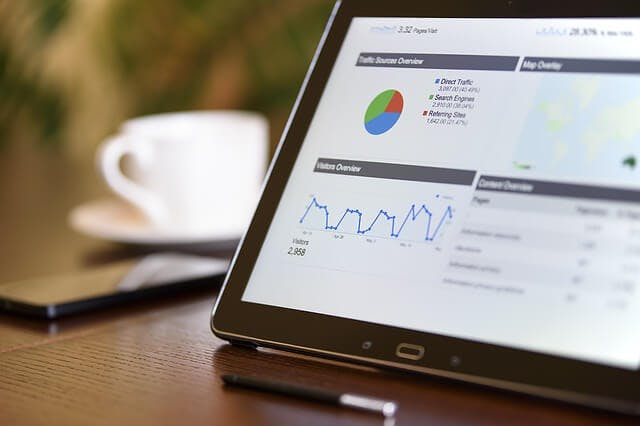
Although a large proportion of data remains unorganized and unused in all sorts of organizations, more and more of it is being used as a strategic asset. In order to enable that use, however, somebody needs to gather, organize and find strategic insights in those data collections.
Enter the data librarian, a term that’s both a job title in itself and a sort of shorthand label to represent all of the different ways that LIS professionals might work within the broad field of data science.
According to Brad Rogers, LibGig Director of Recruiting:
“Think collecting, organizing, processing, analyzing, and archiving data. It’s really many of the things that librarians have been doing since the profession began, just now doing it with digital data rather than paper-based text content. Or as author Amy Affelt says in her book, the librarian has become The Accidental Data Scientist.”
What do data librarians do?
Unsurprisingly, a scan of job descriptions for data librarian makes it clear that every organization has something different in mind for this role. But generally, activities a data librarian might engage in include:
- Collecting raw data, which includes identifying the relevant/best data sources and vetting their credibility and appropriateness for the task or question at hand.
- Processing data, bringing them into a data management system(s) in a uniform format and structure.
- Cleaning data, which includes “scrubbing” the data of items such as duplications so reliable datasets can be created.
- Creating and applying algorithms that will “mine” and retrieve data relevant to the question or issue being considered.
- Analyzing datasets, or results of the models and algorithms that have been run, in order to identify meaningful, actionable patterns of information – in other words, what is this data telling us about the question we are asking?
- Communicating outcomes, often through some type of data visualization or a dashboard format, in a manner that lets key stakeholders easily understand and base decisions on the findings.
- Preserving data, creating and maintaining systems that provide for the preservation, access, retrieval, and potential re-use of the relevant data and datasets for future reference.
Who employs data librarians?
These days, data is everywhere in our lives, from fitness wearables to grocery store check-outs to online recommendation engines. So data professionals can be found in nearly every type of organization imaginable, including employers in healthcare, transportation, entertainment, legal firms, law enforcement, atmospheric science, political organizations, the agriculture/food industry and game development companies.
LinkedIn shows jobs ranging from new-media platforms like Spotify to old-school companies like the Federal Research Bank of Cleveland. Add the modifier research to data librarian, and you’ll find many academic institutions recruiting for research data librarian. Or consider a recent Library of Congress opening for a “Research Assistant, Domestic Social Policy,” whose role will include “…compiling quantitative data and other information; evaluating data for accuracy, relevance, authoritativeness…cleaning and manipulating qualitative data through programming….”
Public libraries, as well, especially the larger (and better-funded ones), are looking to data gathering and analysis in order to make strategic decisions ranging from collection development choices to best programming options to where to locate a new branch library.
The key take-away? Individuals interested in working within a certain industry or type of organization, may want to begin their job search specifically focusing on their target employers or industries, rather than going with a narrow job search on data librarian or related terms.

What skills do data librarians need?
Referencing a Bureau of Labor Statistic (BLS) report, Working with Big Data (Sara Royster), the concluding section identifies three key LIS skills that uniquely suit librarians for contributing to Big Data environments:
- Communication skills—showcasing our role as ‘translators’ able to make data findings useful to key decision makers perhaps not otherwise familiar with data analytics and pattern sense-making.
- Teamwork skills—collaborating with and supporting Big Data teams to help provide meaningful insights from data pattern extrapolation.
- Curiosity—According to Affelt, “the curiosity that librarians bring to Big Data projects ensure that results are thoroughly analyzed, data meets the highest standards, the sources are reliable and alternative interpretations of results are considered.”
In addition to these people and personal skills, in-demand professional areas of expertise are likely to include basic research skills, analytical problem-solving skills, familiarity with basic data analytics concepts and tools and the ability to derive, present and communicate meaning from data within the environment in which your organization operates.
Affelt points out another skill that might seem somewhat surprising: the ability to be a good storyteller. It makes sense when you realize that the point of mining massive amounts of data is to be able to understand, and then share, the story the numbers are trying to tell.
What might LIS data-related jobs be called?
As with so many aspects of LIS work, data librarian is a catch-all phrase that’s pretty much dependent on a particular employer’s job description. For example, a data architect in one situation might be the exact same job as a data services librarian in another.
However, in addition to data librarian, consider:
- Business analytics specialist, business intelligence analyst
- Data analyst/acquisitions administrator
- Data analytics lead, manager
- Data and information specialist
- Data and research analyst
- Data architect
- Data archivist, curator
- Data asset manager
- Data center analyst
- Data editor
- Data governance
- Data management analyst
- Data metadata specialist
- Data modeler, semantic data modeler
- Data quality manager
- Data services librarian
- Data warehouse analyst
- Database librarian, administrator, manager
- Project data manager
- Research data librarian, analyst, architect, archivist, curator
- System data librarian
Salary ranges for data-related LIS jobs
The average salary information for these types of jobs reflects the fact that the term “data analyst” is so broadly interpreted. For example:
- Com lists the suggested salary range for an entry-level data analyst at $50,000-$75,000, or $65,000-$110,000 for an experienced data analyst.
- Payscale lists the average annual salary for a data analyst as $55,000, and places the media pay for senior data analysts at about $74,000.
Note that these are national average or median salaries. As is the case with traditional library salaries, there are substantial regional differences in average salaries. Those numbers are also affected by how large an organization you’re working for, whether or not you’re supervising others, whether you’re in a corporate or nonprofit setting, and how critical the data analysis role is to decision-making within a given organization.
Why consider data-related information jobs
One of the challenges – and benefits – of having LIS skills is that new ways to deploy those skills continue to emerge. Data science is an example of one such emerging opportunity. The many different ways that data analytics can be used strategically, and the many different organizations and industries eager to do so, mean that data-related information work will continue to offer a diversity of high-growth career paths.
Translating the strategic potential of big data into actionable insights takes many of the skills LIS professionals either have or can master. So if you enjoy working with data, consider exploring the various opportunities data-related roles offer information professionals. These jobs pay well, involve a wide diversity of potential career paths, and are likely to continue to increase in the coming years.

